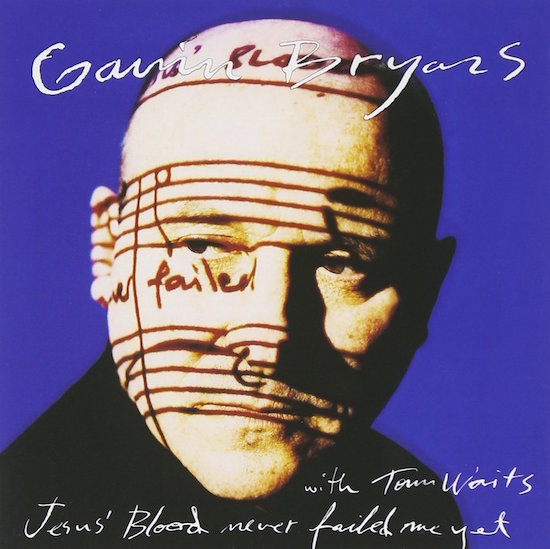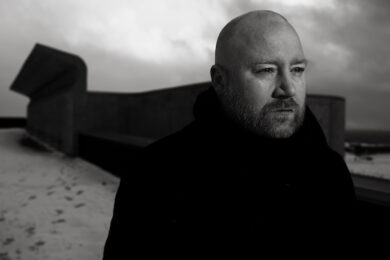7. Gavin Bryars

This one feels like kind of an oddity – conceptually it’s one of the more interesting things I’ve read about in a while.
Yeah. This is a piece I first heard quite a long time ago. It was played to me by Andrew McKenzie of the Hafler Trio, back in the 90s when he lived in Iceland and we shared studios; he had the original 30-minute version on Obscure Records. Gavin Bryars came across a recording of a homeless man in London somewhere singing this old Victorian hymn – he was experimenting with tape at the time and somehow created this loop of a section of the hymn, and started playing around with harmonies and counter-melodies and building it into this slowly-crescendoing orchestral arrangement around this tramp’s voice singing in a way that beautiful, and somehow fragile, and naïve way. You can feel an almost childlike faith in this man’s voice, who was obviously down on his luck and roaming the streets of London in destitution; it’s a very beautiful piece of music and very unique, and one of the seminal pieces in my own musical upbringing.
What kind of effect would you say it’s had on your own work?
Conceptually, in terms of using found sounds and found recordings. One piece that I’ve been working on uses loops and tones made by a computer from the 60s that my father was a programmer for. ‘IBM’ uses a very similar method, but with a very different effect and using different means.
I do this on my new record as well; I’m using these number station recordings from the Cold War and combining them with string orchestra arrangements. You’re bringing into the conversation a whole new conceptual element that carries with it its own set of connotations and allusions.
It’s taking field recordings and found sounds to a slightly higher plane.
Yeah: for example, on my new record there’s a piece called ‘A Song for Europa’, which begins with a young girl reciting this series of numbers in German from these number station broadcasts. And that would be a very different piece of music if that voice were not there; adding the voice gives it a conceptual frame of reference and a set of allusions and references – especially in the sense that my music is mostly instrumental. It adds a layer to the narrative of the work.
‘Jesus’ Blood Never Failed Me Yet’ would be very different if it were sung by a professional singer, and actually it exists in another version where Tom Waits joins the tramp towards the end [pictured] and it’s a complete failure. It utterly ruins the piece and completely defeats the purpose. It sounds purely mercenary, though it had good intentions. I’d advise you to stay away from that recording.


